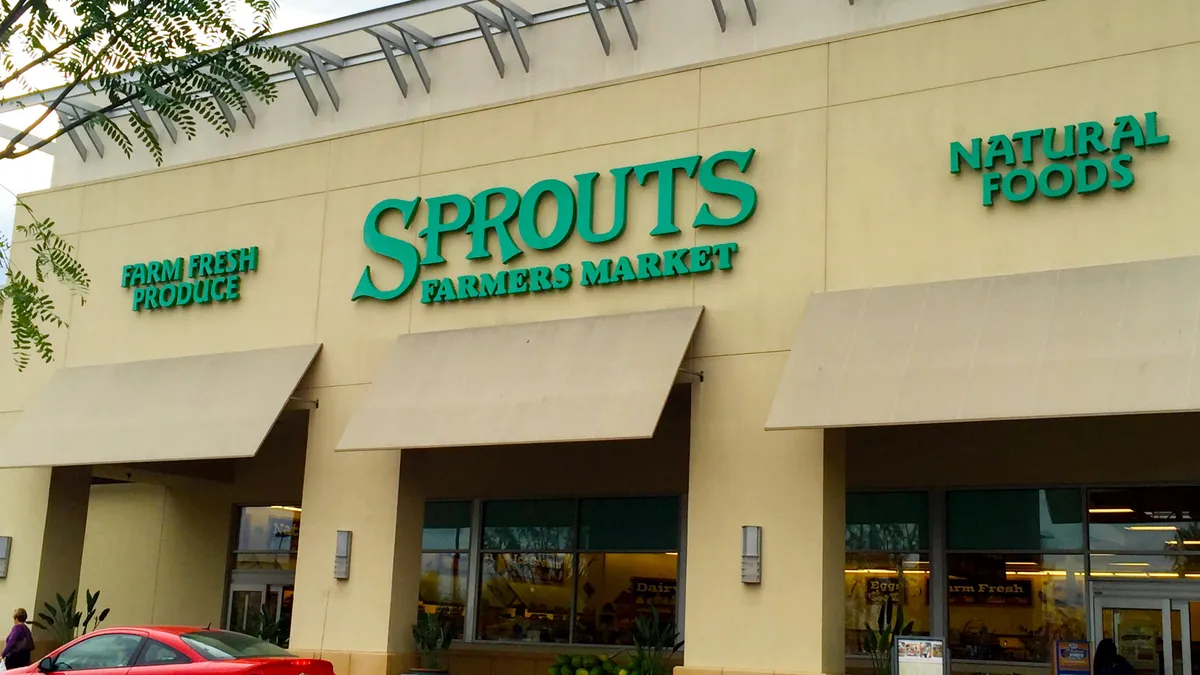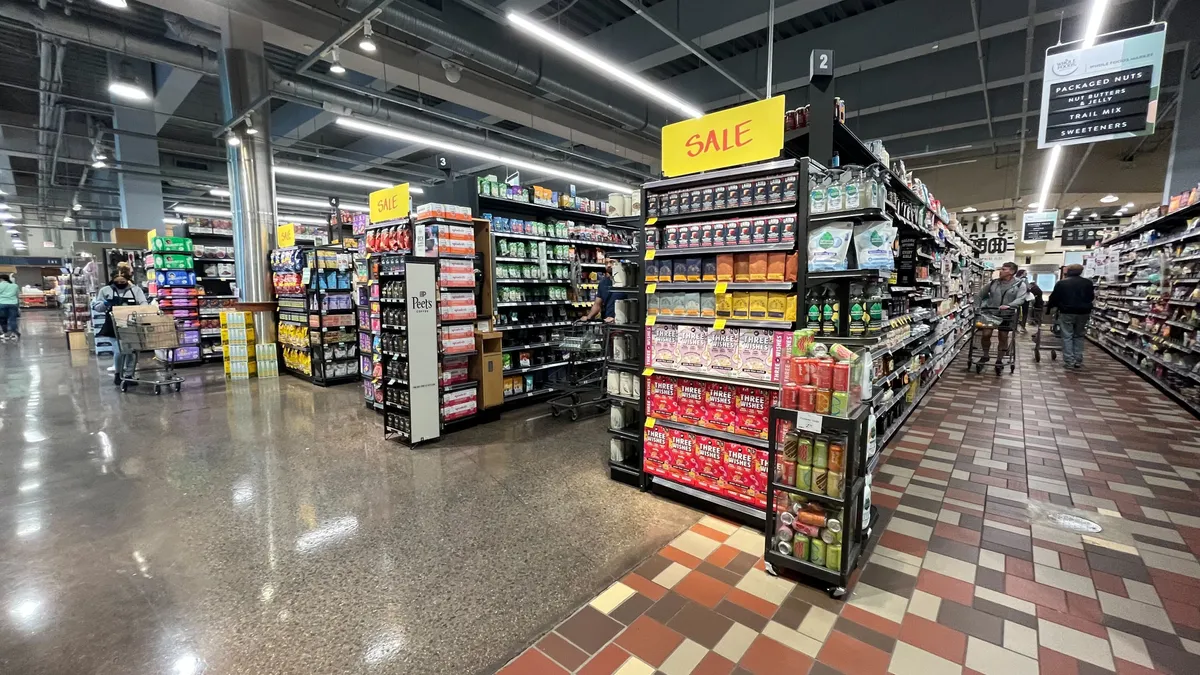Dive Brief:
- Sprouts Farmers Market may have a tough time expanding in the Mid-Atlantic region, according to Supermarket News. This is mainly due to higher occupancy costs and a greater density of competitors than the fast-growing chain is used to.
- In Ellicott City, Maryland, where Sprouts plans to build a store next year, the chain will face off against Harris Teeter, Whole Foods and a soon-to-arrive Lidl, along with numerous conventional competitors. “I just don’t see where Sprouts would be pulling business from,” one analyst told Supermarket News.
- In Philadelphia, where Sprouts is reportedly also building a store, the chain would likely struggle with a lack of brand recognition and a collection of Whole Foods stores, according to a real estate analyst interviewed by SN.
Dive Insight:
Sprouts has quickly grown to 275 locations in 15 states, fueled by significant investment capital and a low-overhead store model. With a solid foothold in the southwest and a growing presence in the eastern U.S., the discount specialty retailer sees a “long runway of profitable growth,” as CFO Brad Lukow stated at a recent investor’s conference, with plans to expand by around 30 stores per year and eventually hit 1,200 or more locations.
Over the past three years, Sprouts has built up a solid base of stores in the southeast, particularly around Atlanta. As it moves up the East Coast, however, it will run into densely packed markets where it will have to fight to stand out. Ellicott City, a Baltimore suburb where Sprouts will place a store next year, is home to a number of conventional and specialty stores, including Harris Teeter and Whole Foods. Lidl is expected to soon join the fray, as well.
In Philadelphia, where Sprouts is also reportedly expanding, the retailer would encounter a Whole Foods stronghold. This could prove problematic as Amazon continues to reshape the specialty chain with a lower-price, online-integrated store experience. According to location data gathered by Thasos Group, Sprouts saw the second-highest rate of defections following Amazon’s much-publicized price discounts.
Along with a greater density of competing stores, Sprouts will also have to deal with higher operating costs than it's used to, as well as a scarcity of prime real estate.
Sprouts could be particularly vulnerable as Amazon and Whole Foods ramp up their promotions. At the same time, Sprouts’ low-price, fresh-focused format does offer a differentiated experience from most East Coast retailers. Around 60% of the store assortment is produce and other fresh items. Sprouts has also increased its selection of prepared foods and private label goods, and is investing in improving customer service.
As CEO Amin Maridia explained at the recent investor’s conference, Sprouts is also seeing solid results from its home delivery partnership with Amazon Prime Now. In addition to valuable data, Maridia said Sprouts is also able to extend its service area with delivery — a crucial gain, he noted, since the chain doesn’t pack its stores very close together.
Sprouts could very well struggle against Lidl, as well, though early results from the German discounter’s U.S. foray haven’t been promising. With its smaller size, and its focus on fresh foods and low prices, Sprouts could end up doing a better job of siphoning customers away from the East Coast’s many outdated traditional grocers. But it will have to draw a lot of traffic in order to make up for the pricier real estate and higher operating costs.










